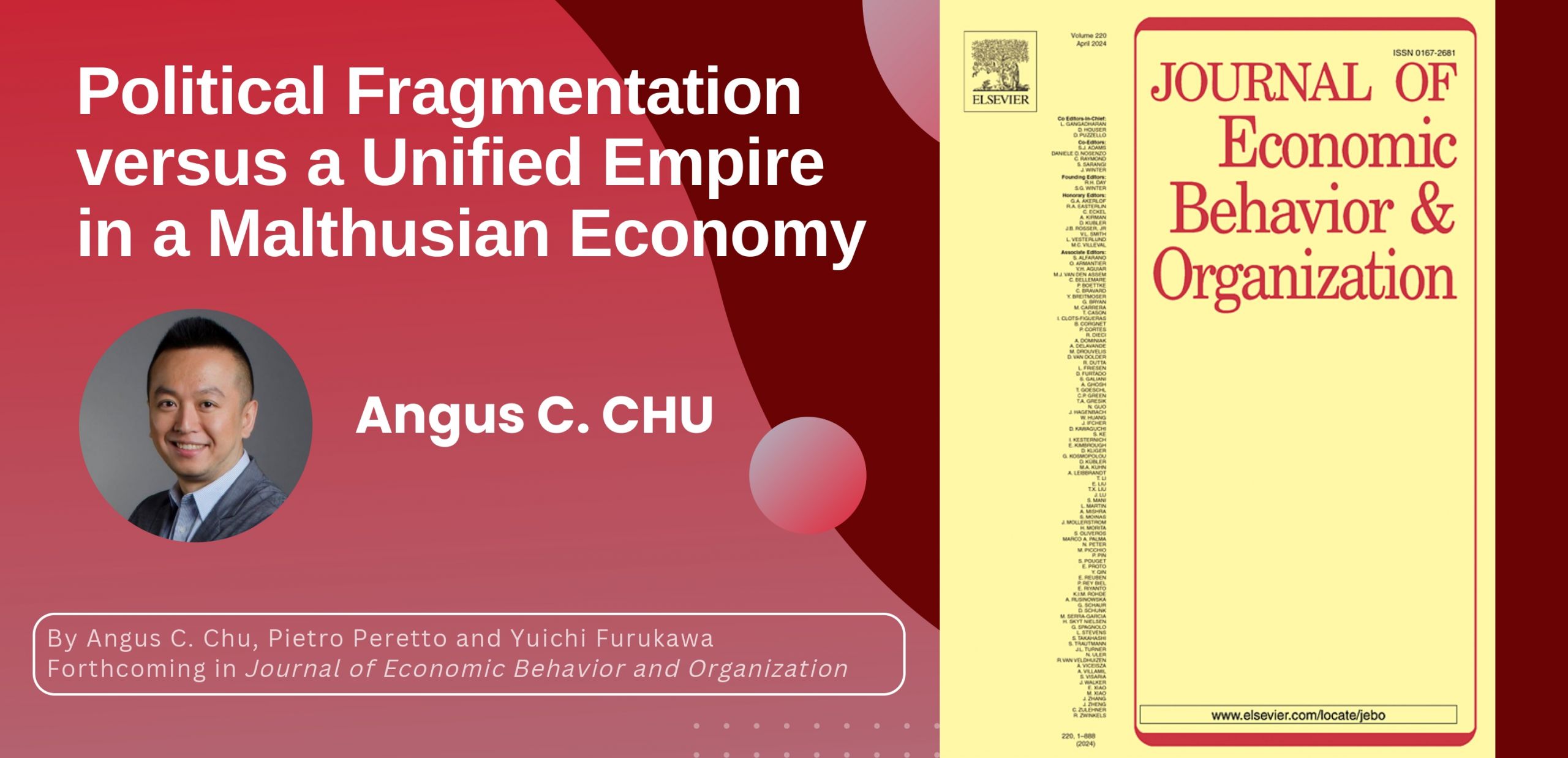
Political Fragmentation versus a Unified Empire in a Malthusian Economy
By Angus C. Chu, Pietro Peretto and Yuichi Furukawa
Published in Journal of Economic Behavior & Organization
Abstract:
What are the historical origins of political fragmentation and unification? This study develops a Malthusian growth model with multiple states to explore interstate competition and the endogenous emergence of political fragmentation versus a unified empire. Our model features an agricultural society with citizens and rulers in a Malthusian environment in which the expansion of one state may come at the expense of another state, depending on the intensity of interstate competition captured by the elasticity of the land ratio with respect to the population ratio between states. If this elasticity is less than unity, then multiple states coexist. However, if this elasticity is equal to unity, then a unified empire emerges. Which state becomes the unified empire depends on its military power, agricultural productivity, and its rulers’ preference for rent-seeking Leviathan taxation. We also discuss the historical relevance of these theoretical predictions in the Warring States period of ancient China.
